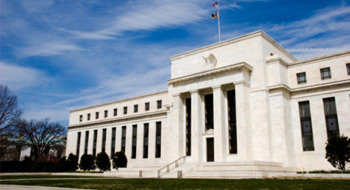
After a week that saw coronavirus worries wallop equity markets into correction territory, the U.S. Federal Reserve announced a 0.5 per cent rate cut on Tuesday morning. Following suit, the Bank of Canada cut its target for the overnight rate by 50 basis points on Wednesday, bringing it to 1.25 per cent.
For the Fed, the timing was a surprise, says Michael Greenberg, vice-president and portfolio manager at Franklin Templeton’s multi-asset solutions business. Most market players had moved on the assumption that the Fed would make a decision on rates at its next meeting in two weeks hence.
“An interesting reaction in the markets,” he says. “Bonds did what they should and the 10-year U.S. treasury has fallen below one per cent, which is pretty amazing. But equity markets cooled off.”
Read: Not just any dip: Is the coronavirus a buying opportunity or a falling knife?
While some were surprised the Fed chose to raise rates in this emergency fashion, it makes sense given its options, he adds. “The Fed has . . . commented on this before, that when you’re closer to your limits as far as the ammunition you have left to effectuate policy, you’re close to that zero-bound as far as interest rate cuts. You want to go harder and sooner than the market expect, you want to have a little bit of that surprise factor, it kind of maximizes your bullets.”
Greenberg also notes the actions prompt questions about whether the Fed has some economic insight not yet seen by other stakeholders. “They did comment that they’re running a base case that the economy is fine, etc. But obviously those downside risks have increased because there are so many uncertainties about the virus.”
The lack of testing in countries like the U.S. likely means cases of the virus are heavily underreported, he adds. “You’re seeing really challenging economic data out of China. You’re probably more at the start of that than the end of that in North America, right? So the data is probably going to get a little bit worse before it gets better.”
Read: Geopolitics ranked top risk for pension funds: survey
As for Canada’s central bank, the virus was certainly a major factor in following the Fed in cutting rates. “While Canada’s economy has been operating close to potential with inflation on target, the COVID-19 virus is a material negative shock to the Canadian and global outlooks, and monetary and fiscal authorities are responding,” read a statement from the BoC.
“It’s the right move,” says Tom O’Gorman, senior vice-president and director of fixed income at Franklin Templeton Canada. “Whether we see more is going to depend on how long the virus goes on for.”
The bank also emphasized that the virus isn’t the only factor weighing on Canadian growth. “In addition, rail line blockades, strikes by Ontario teachers and winter storms in some regions are dampening economic activity in the first quarter,” the statement noted.
Indeed, plenty of factors are weighing on the Canadian economy, says O’Gorman, noting the Canadian consumer isn’t a well the economy can continually return to for optimism without some growth from other avenues, such as further capital expenditure and export growth.
With the virus unfolding, it’s clear the economic data coming through in future quarters will be weaker as the situation continues to impact people’s behaviour, he adds.
Read: Global investors cite interest rates as key portfolio risk: survey
